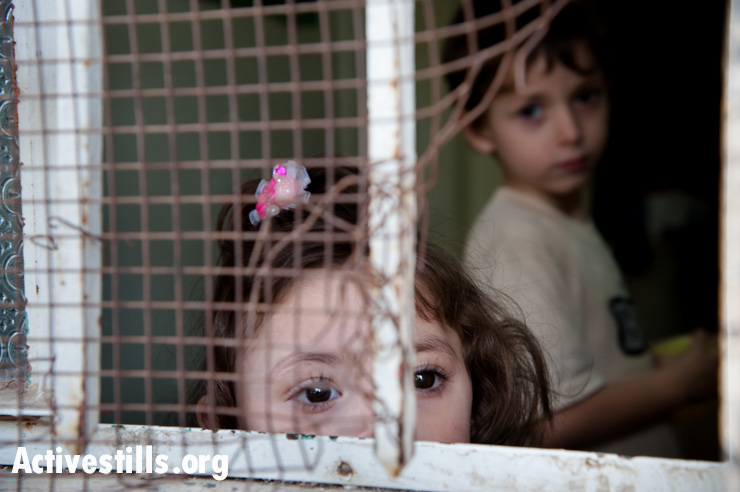When our sympathy only reaches out to the children of one nation alone, we have condemned all of them to this atrocious cycle of violence.
The news spread in a flash. After 18 days of tense waiting, the three bodies of the abducted Israeli boys were finally discovered, with their families’ worst fears realized. Gilad Sha’ar, 16, Naftali Fraenkel, 16, and Eyal Yifrah, 19, were murdered in cold blood, not far from the site where they were snatched as they hiked home together.
There aren’t enough words to express the loss of a child. It is a language that only those families can understand and that writers can only attempt to describe. It is also one of the few pains that many Israeli and Palestinian families can mutually feel. Unfortunately, however, it is uncertain if both would fully recognize that same pain in the other. Many public responses from Israelis and Palestinians have been indifferent to the deaths of the others’ children. Even worse, many would blame those children and parents themselves for their own deaths – for resisting a raid on their home, for living in an illegal settlement, for being ruled by Hamas, for serving the military occupation.

The apathy toward the “other child’s” suffering is painful to watch, including in this latest saga. In the two to three weeks following the abduction of the three Israeli boys, at least eight Palestinians were killed during Israel’s military responses in both Gaza and the West Bank. Among them were 10-year-old Ali al-Awour, 15-year-old Mohammad Dudeen and 22-year-old Mustafa Hosni Aslan. Ali died of wounds from an Israeli missile strike in northern Gaza; Mohammad was killed by a single live bullet in the village of Dura; Mustafa was killed by live bullets in Qalandiya refugee camp during clashes with an Israeli military raid.
I write the names of those three Palestinian boys not to belittle the horrific deaths of the three Israeli boys. I write their names because, while everyone will remember Gilad, Naftali and Eyal, no one will remember Ali, Mohammad or Mustafa. In the coming days, Israeli and international media will be filled with stories of the Israeli boys’ upbringings, the cries of their loved ones, and the fiery promises of political leaders. The same will not be done for the latter; their existence will merely be recorded by a digit in a casualty data collection, nameless and faceless additions to a chart or a graph. Their killers will never be named or brought to trial.
Read +972′s full coverage of the kidnappings and ‘Operation Brother’s Keeper’
B’Tselem Executive Director Hagai El-Ad highlighted just as much in his beautiful piece on the killing (read “murder”) of 17-year-old Nadim Nuwara during this year’s Nakba Day protests. The killing of a Palestinian youth is seen as a common occurrence; a frequent feature of the conflict that is hardly cause for deep sorrow because of its “ordinariness.” A young Palestinian can be abducted, arrested and tortured, and the incident will still be considered routine. The killing of an Israeli youth, however, is an atrocity, a rarity, an event that demands swift retribution. The three Israeli boys deserve that sympathy and more. But it is frustrating to see it only being done for one side when the other faces the same, and indeed more, of such tragedies.
Palestinians are also guilty of this dichotomous thinking. Moral exclusivity for the lives of one side’s children and youth is an unacceptable path to accept, regardless of what the conflict does to Palestinians. No amount of occupation can justify an Israeli child’s murder. Palestinians should read about Gilad, Naftali and Eyal, and imagine the horrors they faced before their last moments. When our sympathy only reaches out to the children of one nation alone, we have condemned all of them to this atrocious cycle of violence. We cannot continue to think of them as “Gilad, Naftali and Eyal,” and “Ali, Mohammad and Mustafa.” It is “Gilad, Ali, Mohammad, Naftali, Mustafa and Eyal.” No distinction, and no separation according to which “side” they’re on.
Sadly, rethinking our empathy toward young victims is not enough to stop what is about to come, nor can it hide the gross asymmetries of the continuing conflict. With the Israeli boys’ deaths and dozens of rockets firing from Gaza, the Israeli government is ratcheting up its collective punishment and political opportunism against the Palestinians. It will launch further massive air strikes across the Gaza Strip, regardless of how many civilians and children are harmed. It will destroy the homes of any Palestinian suspect, regardless of its displacement of tens of innocent family members including children. It will announce the construction of more settlements, regardless of its irrelevance vis-a-vis the fate of the Israeli children. This recent saga is thus from over, and our inability to see its full scale and nature, including the impact on the other side’s innocents, will be a leading contributor to its duration.
Amjad Iraqi works at Adalah – The Legal Center for Arab Minority Rights in Israel. The opinions expressed in this article are the author’s own and do not represent the views of the organization.
Related:
Analysis: The end of the ‘cheap occupation’ era
Israeli right demands punitive measures against Palestinians
When the canons roar, the Israeli Left remains silent



